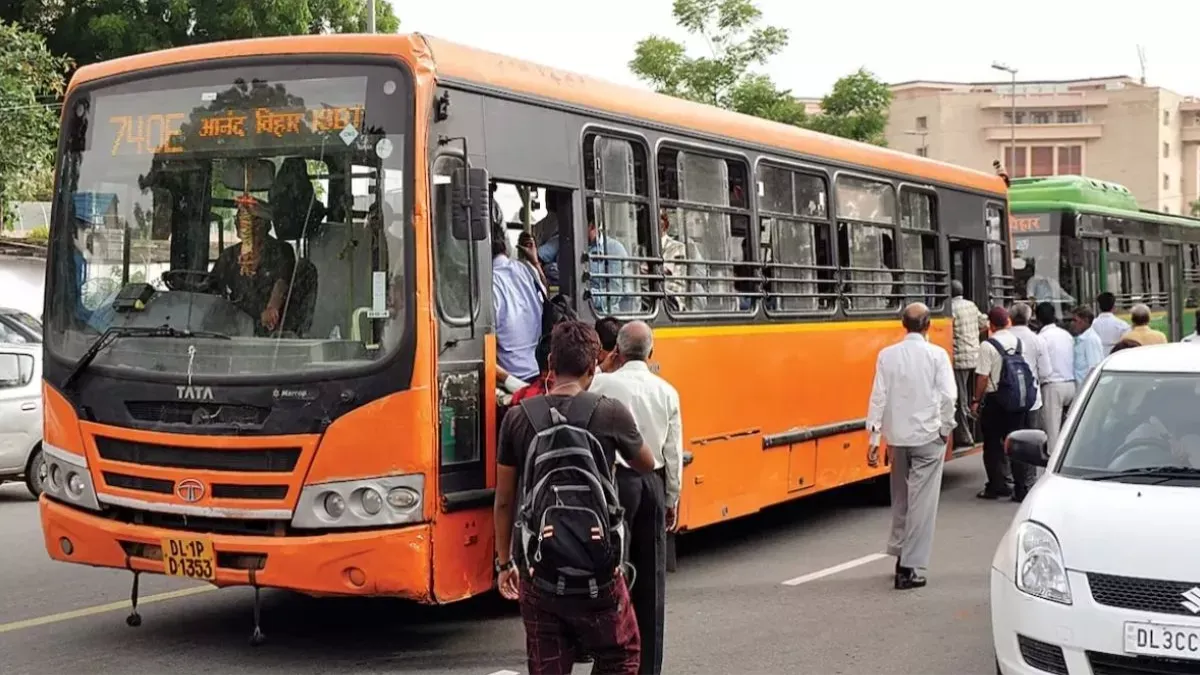- By PTI
- Thu, 18 Sep 2025 11:59 PM (IST)
- Source:PTI
Commuters will soon be able to use a single smart card for public transport in Delhi and several other parts of the country, as the Delhi government prepares to roll out the National Common Mobility Card (NCMC) program in the capital, officials said on Thursday.
The NCMC (National Common Mobility Card) is a contactless travel prepaid card, allowing the owner to travel in all Public Transport Services in Delhi or other places where applicable.
The Delhi Transport Corporation (DTC) has invited bids for empanelment from nationalised banks for the issuance of colour-coded smart cards for travelling in all the public transport systems across Delhi.
The card will have three colour codes -- pink cards for women and the transgender community, blue for every person and an orange monthly pass for general and concessional category commuters, an official said.
Through the pink card, one can avail free travel in buses and on a paid basis in other public transport like DMRC, RRTS, and others, using the same card. The card will be issued to bona fide residents of Delhi.
To obtain the digital card, applicants must be bona fide residents of Delhi, aged 12 years or above, and have valid proof of address.
Commuters can get the NCMC from their preferred banks through branches or other service channels. Selected bidders will provide instant issuance of these cards at designated service points.
"During travel in a bus, the commuter shall specify the destination of travel to the conductor who will then use the Electronic Ticketing Machine (ETM) to punch in the necessary details (destination code, commuter category, no. of tickets, etc.) and generate the e-ticket through the ETM printer," an official explained.
Commuters will tap the contactless NCMC card on the ETM machine, which will validate the card and deduct the fare amount, if applicable, for the route from the card, he added.
The final amount will be written back on the card by the ETM device. Ticket and fare transactional data from the ETM shall be transmitted to Automatic Fare Collection System (AFCS) back-end servers over GPRS at a regular pre-configured frequency over a secure communication channel, the official said.
The ETM/AFC system shall further send the transaction data to the acquirer bank, he said, adding that the clearing house shall settle the payment balances between the issuing and acquirer bank on a daily basis.
The commuter may recharge or load the card through internet banking or by paying at point of sale locations or other payment channels as provided by the issuing bank.
At the end of the trip, the cash and digital money collected during the trip against the issued tickets shall be deposited at the respective depots by the crew, he added.
The depot manager will reconcile this amount received from the crew with the data received at the back-end server (using revenue reports) and mark the status of the trip closure report accordingly.
"To prevent any malpractice, an inspector could inspect the e-ticket and smart card validity, using his ETM. In case the e-ticket or the card is found invalid, the inspector may penalise and charge an appropriate fine from the commuter and issue a system-generated receipt," he said.
According to the ridership data for the last six months from January to June this year for both DTC and cluster buses, the average daily ridership has been assessed at approximately 14.25 lakh for male passengers and 14.79 lakh for female passengers, excluding monthly pass commuters.
The DTC is presently issuing monthly passes across various categories, under which approximately 7.3 lakh general category passes and 3.5 lakh concessional category passes have been issued during the financial year 2024–25.
(Disclaimer: Except for the headline, this article has not been edited by The Daily Jagran staff and has been published through syndicated feed by PTI.)
